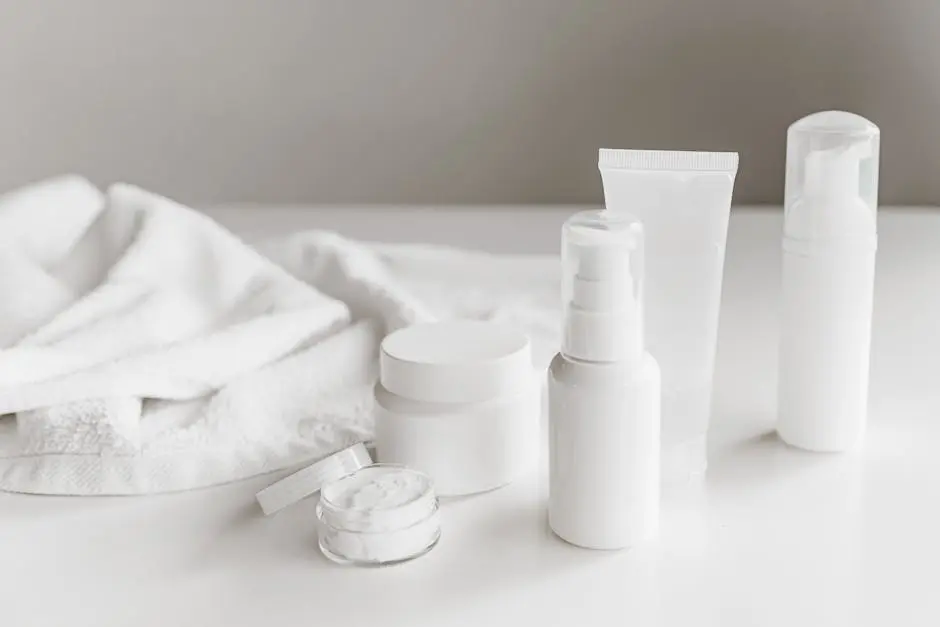Skincare antioxidants are becoming increasingly popular in the beauty world, but what exactly can they do for your skin? In this FAQ blog, we’ll explore how antioxidants can enhance your skin tone and boost hydration levels, making your complexion look more vibrant and youthful.
What Are Skincare Antioxidants?
Antioxidants are compounds that help protect your skin from damage caused by free radicals, which are unstable molecules that can harm skin cells. Understanding their role is crucial to grasping how they improve skin tone and hydration.
Common antioxidants include vitamins C and E, along with coenzyme Q10 and green tea extract. Each of these plays a unique role in maintaining skin health. By neutralizing free radicals, antioxidants not only protect your skin barrier but also support the skin’s natural repair processes.
Due to their protective properties, antioxidants are often included in a variety of skincare products, from serums to face creams. Their ability to combat the effects of pollution and UV rays makes them an essential component of any effective skincare regimen.
In essence, antioxidants serve as a shield for your skin, reducing signs of aging and promoting a youthful appearance. The more we understand antioxidants, the better equipped we are to choose products that enhance skin vitality.
How Do Antioxidants Improve Skin Tone?
Antioxidants can help reduce dark spots, even out skin tone, and enhance overall radiance. They promote a brighter complexion by combating oxidative stress and promoting cell renewal.
For example, vitamin C is known for its skin-brightening qualities. It inhibits melanin production, which can help diminish the appearance of pigmentation and leave you with a more uniform skin tone. This process can take time, but consistent use yields remarkable results.
In addition to brightening, antioxidants help support the skin’s natural collagen production. When collagen levels are boosted, skin appears more firm and taut, which also contributes to a more even skin tone and texture.
Moreover, antioxidants also contribute to a healthy glow by reducing inflammation. Ingredients like resveratrol and niacinamide work wonders in calming irritated skin, which can often lead to redness or uneven patches.
Thus, by incorporating antioxidants into your skincare routine, you’re not just investing in brighter skin—you’re also aiming for a more even, youthful complexion that radiates health and vitality.
Which Antioxidants Are Best for Hydration?
Certain antioxidants like vitamin C and E not only protect against environmental damage but also improve skin hydration. They help to maintain the skin’s moisture barrier, keeping it plump and dewy.
Hyaluronic acid, although not a traditional antioxidant, is often paired with them to enhance hydration levels. It draws moisture to the skin, supplementing the effects of antioxidants and creating a hydrating powerhouse in your routine.
Another notable mention is coenzyme Q10, which helps your skin retain moisture while fighting off free radicals. Pairing these antioxidants together will provide your skin with a dual-action defense, ensuring it looks its best at all times.
In addition to serums, many moisturizers infused with these antioxidants can provide comprehensive hydration and protection. The right balance of hydration will not only help your skin feel soft and smooth but also keep it looking youthful.
How to Incorporate Antioxidants Into Your Skincare Routine?
You can introduce antioxidants through serums, moisturizers, and even dietary sources. Start with a vitamin C serum in the morning for protection and a rich vitamin E moisturizer in the evening for hydration.
Creating a successful routine does not have to be complicated. Additionally, consider adding foods rich in antioxidants, such as berries, dark leafy greens, and nuts, to your diet. This holistic approach ensures that your skin reaps the benefits from both internal and external sources.
When selecting products, look for formulations specifically designed for your skin type. For example, if you struggle with acne, a lightweight vitamin C serum may be more effective than heavier options. Tailoring your selections helps maximize the impact of antioxidants.
Remember, consistency is key! Over time, you will start to notice subtle changes in your skin tone and hydration levels, reaffirming the importance of these effective ingredients.
Are There Any Side Effects of Using Antioxidants?
Most antioxidants are safe for all skin types, though some people may experience irritation. Always do a patch test and consult with a dermatologist if you have sensitive skin.
In rare cases, certain antioxidant formulations might not agree with specific skin types, leading to redness or breakouts. If you notice any negative reaction, discontinue use immediately and consider opting for gentler formulations.
Educating yourself about ingredients is essential to finding the right antioxidants for you. Reading labels and understanding product formulations can go a long way in ensuring a positive experience with these beneficial ingredients.
As with any product, moderation is key. Just because an ingredient is beneficial doesn’t mean slathering on excessive amounts will deliver better results. A balanced approach ensures that your skin remains healthy while reaping the full benefits of antioxidants.
Wrapping It Up: The Power of Antioxidants
Incorporating skincare antioxidants into your routine can lead to remarkable improvements in both skin tone and hydration. By understanding what antioxidants are and how they work, you can make informed decisions about the best products for your skin type.

